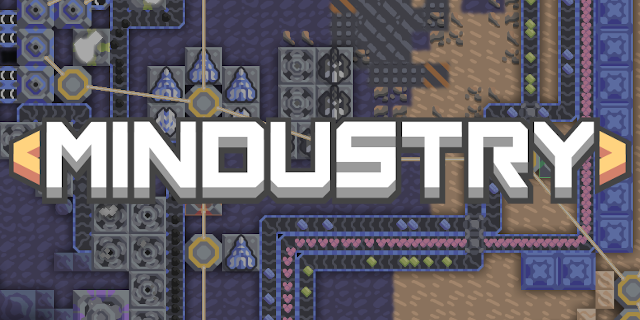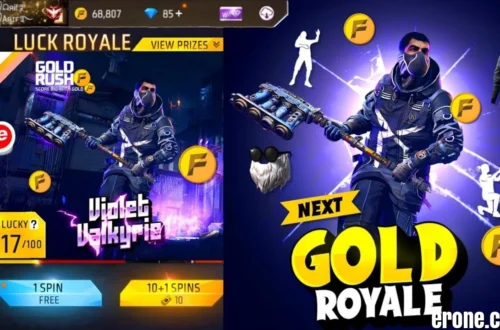Introduction: What Are GitHub Games?
github games If you’re a gamer or a developer, chances are you’ve stumbled upon GitHub at some point. Known primarily as a platform for sharing code, GitHub is also a surprisingly rich hub for games—both for playing and developing them. GitHub games are essentially open-source games hosted on the platform, and they range from simple browser-based projects to complex engines that rival commercial titles.
In recent years, GitHub has grown into more than just a place to dump code. It’s become a vibrant community where developers collaborate, share ideas, and even build fully-fledged games. Whether you’re looking to play retro-style 2D games, explore experimental indie projects, or contribute to ongoing game development, GitHub has something for you.
These games can be anything from text-based adventures coded in Python, to visually immersive 3D games using Unity or Unreal Engine. What’s more exciting is that many of these are completely open source. This means you can not only play them but also see how they were made, tweak them to your liking, or even contribute to their growth. Let’s dive deeper into what makes GitHub games a unique corner of the internet.
The Appeal of Open-Source Games on GitHub
One of the most compelling aspects of GitHub games is that they are open source. This gives them a kind of freedom and flexibility that’s hard to find in commercial gaming. Developers and gamers can freely download, play, and modify these games without worrying about licensing restrictions.
For developers, this is an incredible opportunity to learn. You can study the source code of games you admire, see how others solve common problems, and even fork a repository to create your own version. Whether you’re just getting started in game development or looking to polish your skills, GitHub offers a no-pressure environment where you can learn by doing.
On the flip side, gamers benefit too. With open-source projects, you often get games that are created out of pure passion, not commercial incentive. That can lead to more creativity, more innovation, and sometimes, just more fun. It’s not unusual to find a game that looks rough around the edges but is bursting with charm and originality.
Plus, many of these games are completely free. No microtransactions, no ads, and no paywalls—just good old-fashioned gaming fun. For indie enthusiasts, this is a goldmine.

Types of Games You’ll Find on GitHub
The variety of games on github games GitHub is astonishing. You can find everything from simple HTML5 browser games to complex multiplayer experiences. Here’s a quick breakdown of some popular categories:
1. Browser-Based Games
These are perhaps the most accessible. Built with HTML, CSS, and JavaScript, these games can be played directly in your web browser. Projects like 2048, Hextris, and PixelCraft have become internet classics and are freely available on GitHub.
2. Console-Style Retro Games
If you’re nostalgic for the days of NES or SNES, GitHub won’t disappoint. Developers often recreate or remix classic games using modern tools. These games, while primitive in graphics, are excellent examples of how to structure game logic and mechanics.
3. Game Engines and Frameworks
GitHub is also home to many custom game github games engines like Godot (open-source and widely used), Phaser (perfect for 2D games), and PICO-8-like fantasy consoles. These aren’t games themselves but are the tools used to make them. Exploring these engines gives a deep dive into the mechanics behind the magic.
4. Multiplayer and Networked Games
There are even multiplayer games built with technologies like Node.js, WebSockets, and Unity. You’ll find card games, battle arenas, and even real-time strategy games that can be played with friends over the web.
5. Educational and Experimental Games
Some GitHub games are created as part of academic projects or game jams. These often push the boundaries of what games can be, experimenting with mechanics, storytelling, or interaction in unconventional ways.
How to Find Great Games on GitHub
You might be wondering: how do you actually find these gems among millions of repositories? The good news is, there are plenty of ways to uncover quality GitHub games:
1. Search by Tags and Keywords
Use GitHub’s search feature with terms like “game”, “HTML5 game”, “Unity”, or “Pygame”. Filtering by stars or forks can help you find projects that the community loves.
2. GitHub Topics
Topics like game-dev, game-engine, or game-jam are github games great starting points. Clicking these tags leads you to curated collections of related repositories.
3. Curated Lists and Awesome Repos
There are plenty of “awesome-lists” that gather the best GitHub games. Repositories like Awesome Open Source Games are updated regularly and can be a great resource to explore.
4. Reddit and Developer Forums
Communities like r/gamedev or r/opensource often share GitHub links to cool projects. These are great places to find recommendations and feedback from other users.
Getting Involved: From Player to Contributor
One of the most rewarding aspects of GitHub games is that you’re not just limited to playing—you can also contribute. Whether it’s fixing a bug, improving the UI, translating dialogue, or even creating new levels, there’s room for everyone.
Many GitHub game projects welcome contributions github games and provide clear “Contributing Guidelines” to help newcomers. This is not only a good way to give back but also a powerful method of learning. You’ll get real-world experience working with version control, issue tracking, pull requests, and collaborative development.
And let’s not forget: contributing to open-source games looks great on a resume. It shows potential employers that you’re passionate, proactive, and familiar with team-based development practices.
Notable GitHub Game Projects Worth Exploring
Here are a few standout GitHub games that showcase the diversity and creativity of the community:
- 2048 (by gabrielecirulli)
The tile-matching puzzle game that went viral. Simple to understand, hard to master—and completely open source. - DwarfCorp
A fun mix of Dwarf Fortress and Minecraft, where you manage a colony of dwarves in a voxel-based world. It’s built in C# and open for contributions. - Minetest
A Minecraft-like sandbox game engine written in C++. It’s lightweight, moddable, and perfect for creative minds. - Space Station 13
A multiplayer role-playing game where players assume roles on a space station. Known for its complexity and chaos, it has multiple forks and is an open-source phenomenon. - OpenRA
A real-time strategy game engine that recreates classics like Command & Conquer and Red Alert. A great project if you’re into RTS games or networking protocols.
Final Thoughts: Why GitHub Games Matter
GitHub games are more than just a niche hobby—they represent a thriving, collaborative culture of creativity. At a time when mainstream gaming is increasingly dominated by microtransactions, locked content, and corporate oversight, GitHub provides a refreshing alternative.
Whether you’re a gamer looking to discover hidden gems or a developer seeking inspiration, the world of GitHub games has something valuable to offer. It’s a space where passion projects can thrive, where learning is hands-on, and where anyone—from a novice coder to a seasoned engineer—can leave their mark.





